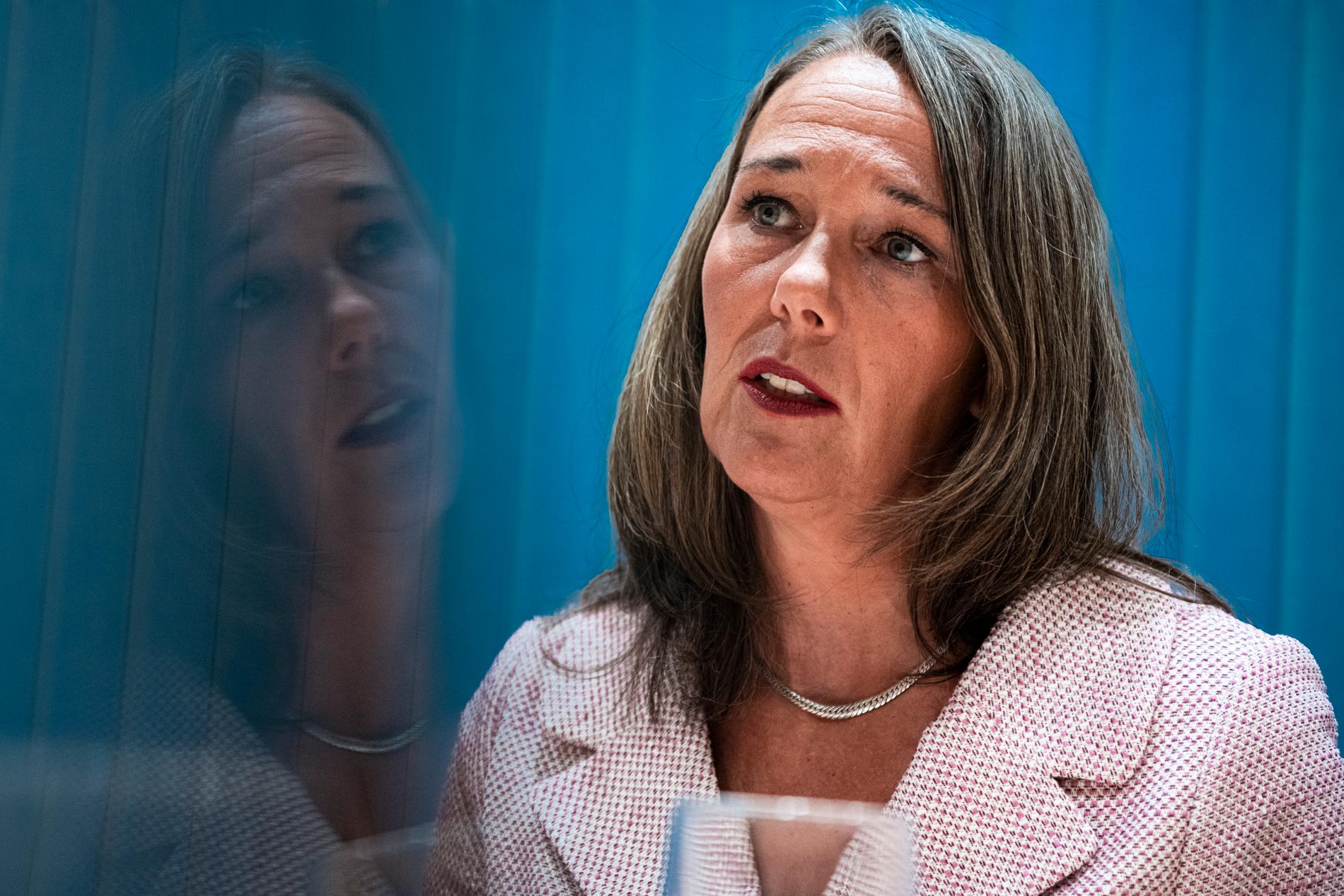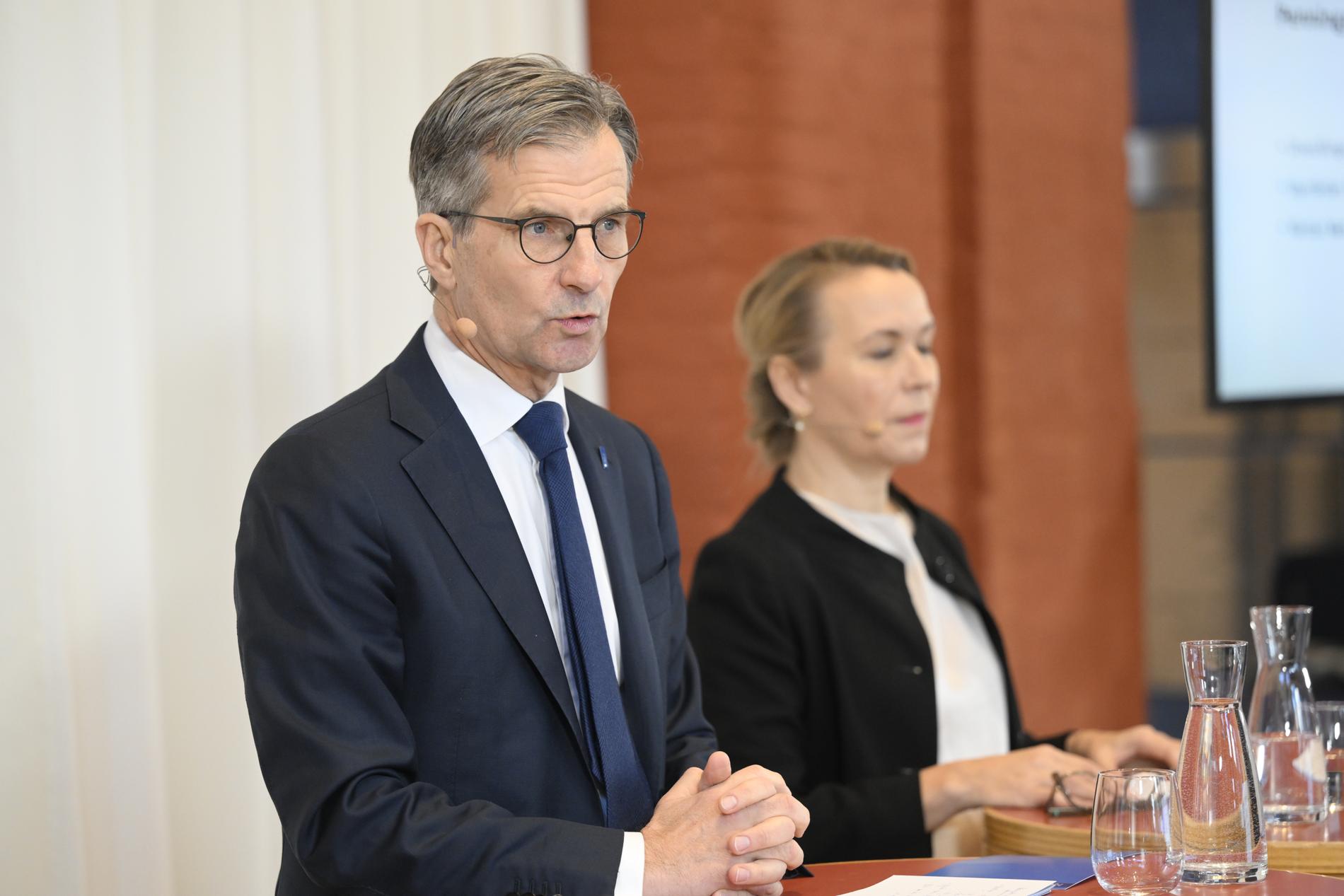My economy
The Riksbank
Worst case scenario – after the "good news"
The Riksbank prepared with new increases at the turn of the year
Mikaela Somnell
Published 21.25
After today's interest rate announcement, a brightening is visible on the economic horizon.
But the Riksbank sees a risk of dark clouds already at the turn of the year - and is ready for a scenario with an inflationary storm that can only be met with more interest rate increases.
- That would probably mean a crisis, says Nordea's chief economist Annika Winsth.
The Riksbank predicts a cautious easing in the economy and despite the interest rate path saying otherwise, most economists believe in a first reduction in the key interest rate in 2024.
But the uncertainty is great and in an alternative scenario the Riksbank is preparing for inflation to be higher than expected.
- One imagines here that companies do not adjust prices according to costs but instead increase their margins.
- This is assumed to cause inflation to be higher than expected in the near future.
- In this scenario, you also see that indicators, such as the companies' price plans, turn upwards.
This would likely lead to the Riksbank responding with a higher policy rate already at the beginning of 2024.
- I rather see that a weak krona would mean that the companies have to pass on cost increases. If the krona becomes weaker again, you import more inflation and then the risk is that you will have to raise the interest rate again, says Annika Winsth, chief economist at Nordea.
Annika Winsth believes, however, that the economy is already so weak that the Swedish economy cannot handle another interest rate hike so soon.
- Then you would choose to break the economy to push down inflation, the pain threshold is too high. It would likely mean a crisis for the commercial real estate market, which would be a very high price to pay. Historically, it takes ten years before you are back to square one after such a housing crisis. Then it is better with a little too high inflation.

Annika Winsth is chief economist at Nordea. Photo: Tim Aro/Svd/TT
Scenario two: Inflation falls very quickly
- In another alternative scenario, it is assumed that inflation falls more than expected.
- In such a situation, the Riksbank thinks that demand will weaken, making it more difficult for companies to raise prices.
In this scenario, a reduction in mid-2024 would instead be considered.
The desired result would then be that inflation is kept up and ends up close to the target, while the lower interest rate would also moderate the loss in demand, whereupon the GDP level would land close to the main scenario during the forecast period.

Riksbank Governor Erik Thedéen announced today that there will be no interest rate increase this time. Photo: Fredrik Sandberg/TT
According to Annika Winsth, this is a more likely scenario than the previous one.
- They have pushed the economy significantly around the world. The effect can come with a ketchup effect. Companies find it more difficult to raise prices, demand declines. If you look at Swedish retail, you will see that they have a lot of promotions. The companies need the consumers and many fight for them.
Annika Winsth believes that, in a situation like this, being cautious with interest rate cuts can be wise.
- That would be reasonable. You have to be humble about the inflation target and bear in mind that prices are very much controlled internationally.
However, Annika Winsth believes that the most likely outcome is the Riksbank's main scenario.
- The risk is greater that inflation will fall faster than expected. Cross-wise, it may bounce up a bit, but I think it will be more on the downside. But the main scenario is the most plausible, with inflation falling over time as commodity prices come down.
FACTS
7 questions and answers about the Riksbank and interest rate notices
- What dose the Riksbank do? The Riksbanken is Sweden's central bank and is responsible for the country's monetary policy, which includes adjusting the policy rate to affect inflation and the stability of the economy.
- What dose the interest rate notice mean? The interest rate statement is a statement from the Riksbank about the current level of the key interest rate. This decision affects the interest rate that banks use to lend money to each other, which indirectly affects interest rates on loans and savings to the public.
- Why raise the interest rate? The interest rate is raised to curb inflation, that is, when the prices of goods and services rise too quickly. Higher
interest rates make it more expensive to borrow money, which leads to
reduced consumption and investment, thus slowing price growth.
- Why lower the interest rate? Interest rates are lowered to stimulate the economy, especially when inflation is low and economic growth is weak. Lower interest rates make it cheaper to borrow money, which encourages consumption and investment, thereby increasing economic activity.
- How dose the interest rate announcement affect individuals? When interest rates rise, it becomes more expensive to borrow money, which can affect everything from mortgages to credit. If
the interest rate is lowered, it will be cheaper to borrow, which can
benefit those who want to take out new loans or have variable loans.
- How dose the interest rate announcement affect companies? For companies, higher interest rates can mean higher borrowing costs and less investment. Lower interest rates, on the other hand, can facilitate financing and stimulate expansion and investment.
- How do you predict interest rate decisions? Analysts and economists study economic indicators such as inflation, unemployment, and GDP growth to predict the Riksbank's decisions. However, the decisions are often complex and influenced by many factors.

Inga kommentarer:
Skicka en kommentar